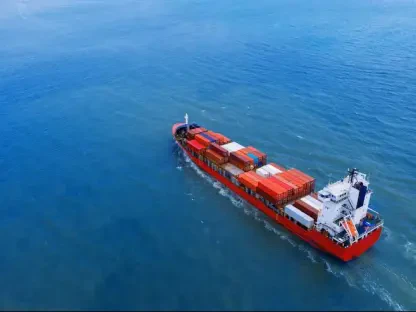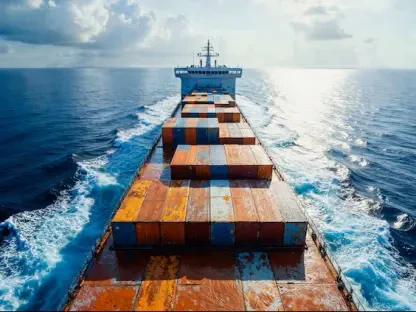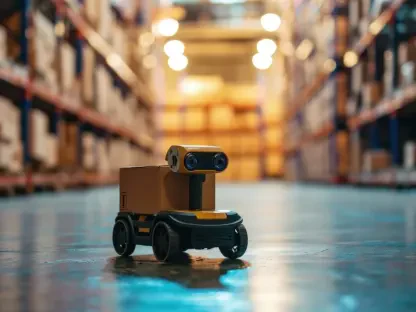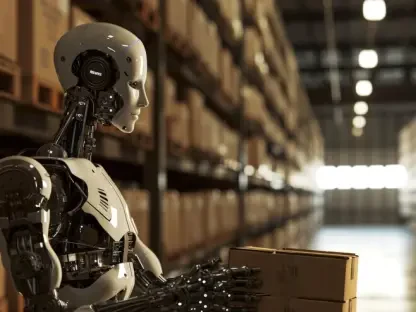We’re thrilled to sit down with Rohit Laila, a veteran in the logistics industry with decades of experience spanning supply chain management and delivery operations. Known for his passion for technology and innovation, Rohit has witnessed firsthand the evolution of this critical sector. In this interview, we dive into the transformative changes in logistics, the impact of global challenges, the importance of industry advocacy, and the role of innovation in shaping the future of supply chains.
How did your journey in the logistics industry begin, and what drew you to this field?
My journey started over two decades ago when I stumbled into a role at a small freight company. I was fascinated by the sheer complexity of moving goods across borders and the puzzle of optimizing routes and costs. What really hooked me was the idea that logistics is the backbone of global trade—nothing moves without us. Over the years, I’ve worked in various roles, from operations to strategy, and each experience deepened my appreciation for how vital this industry is to everyday life.
What have been some of the most significant shifts you’ve observed in logistics over the past decade?
The last ten years have been a rollercoaster. Technology has completely reshaped how we operate—think automation, real-time tracking, and data analytics. Then there’s the push for sustainability, with companies racing to cut carbon footprints through electric fleets and alternative fuels. Global events like trade disruptions and pandemics have also forced us to rethink supply chain resilience. We’ve had to become more agile, diversifying suppliers and building stronger contingency plans to keep goods moving no matter the crisis.
How have major challenges like global health crises or geopolitical shifts impacted the way the industry operates?
These challenges have been game-changers. During the pandemic, for instance, we saw unprecedented demand for e-commerce logistics as people shifted to online shopping overnight. At the same time, border closures and labor shortages created bottlenecks. Geopolitical issues, like trade tariffs or regional conflicts, have added layers of complexity to international shipping. The industry had to adapt quickly, adopting digital tools for visibility and finding creative ways to reroute shipments. It’s been tough, but it’s also shown how resilient and innovative we can be.
Can you share a particularly difficult moment you’ve faced in your career and how you navigated it?
One of the toughest moments was during a major supply chain disruption a few years back when a key port shut down unexpectedly. We had shipments stuck, clients frustrated, and costs piling up. I remember long nights coordinating with partners to find alternate routes and negotiating with carriers for emergency capacity. What got us through was clear communication with everyone involved and a willingness to think outside the box. It taught me the importance of staying calm under pressure and always having a backup plan—or three.
In your view, how critical is it for logistics organizations to build strong relationships with government and decision-makers?
It’s absolutely essential. Logistics isn’t just a business; it’s a public service that keeps economies running. Building relationships with government helps ensure policies support efficient operations—whether it’s infrastructure investment or border regulations. I’ve seen how advocacy can lead to real change, like pushing for better road networks or streamlined customs processes. It’s about showing policymakers that what we do impacts everyone, from the store shelf to the factory floor, and getting them to prioritize our needs.
How has technology influenced your approach to solving logistics challenges over the years?
Technology has been a lifesaver. Early in my career, everything was manual—spreadsheets, phone calls, guesswork. Now, with tools like AI for demand forecasting and IoT for tracking shipments in real time, we can make smarter decisions faster. I’ve personally championed adopting digital platforms to improve visibility across supply chains. It’s not just about efficiency; it’s about transparency for clients and reducing errors. Tech isn’t a luxury anymore—it’s the foundation of staying competitive in this fast-paced industry.
What role do you think innovation will play in addressing the industry’s push toward sustainability?
Innovation is the key to sustainability. We’re seeing incredible advancements, like electric and hydrogen-powered vehicles for last-mile delivery, and even drone technology for remote areas. Smart routing software cuts fuel use by optimizing trips. But it’s not just about tools; it’s about mindset. Companies need to invest in R&D and collaborate on green initiatives. I believe that in the next decade, sustainability won’t be a choice—it’ll be a requirement, and innovation will be what gets us there without sacrificing efficiency.
What is your forecast for the future of logistics over the next decade?
I think we’re heading toward a hyper-connected, tech-driven future. Automation will dominate warehouses, with robots handling picking and packing at scale. We’ll see more integration of blockchain for secure, transparent supply chains. Sustainability will be non-negotiable, with stricter regulations pushing zero-emission goals. At the same time, I expect more volatility—geopolitical tensions and climate events will keep testing our adaptability. But with the right investments in tech and talent, I’m optimistic that logistics will not just survive but thrive as the heartbeat of global commerce.









